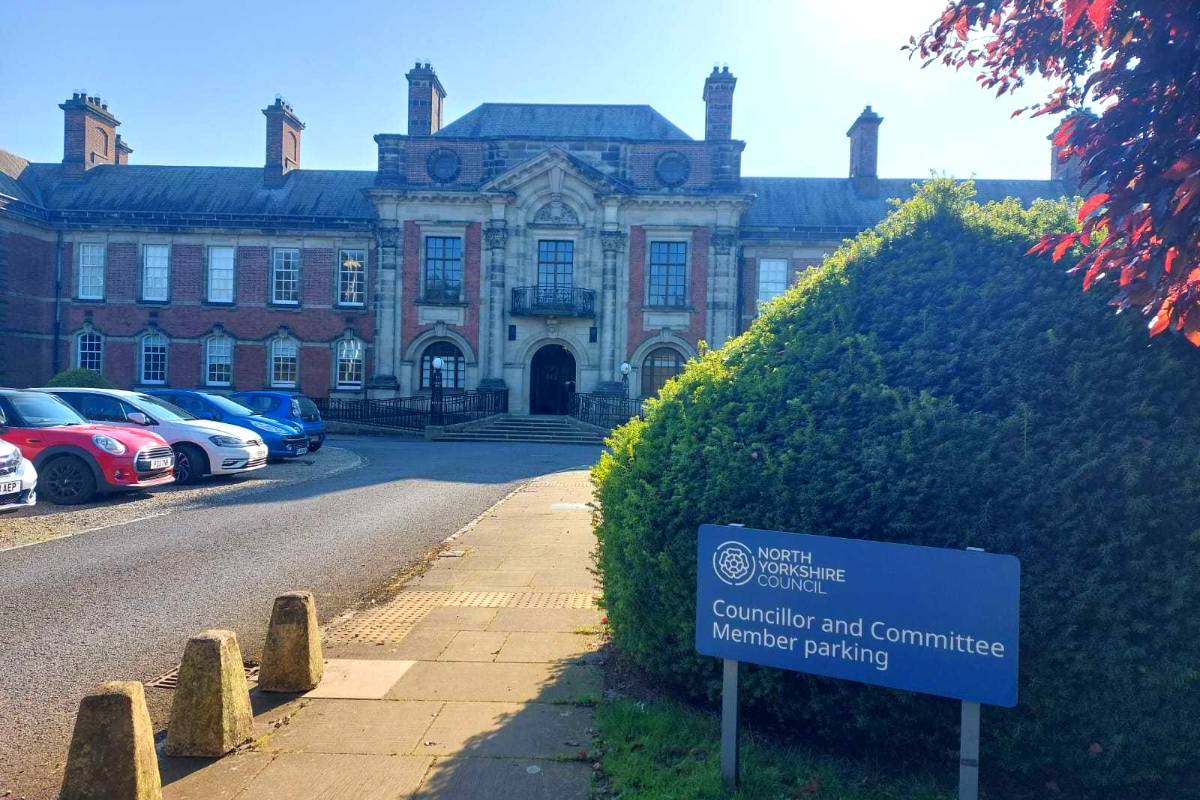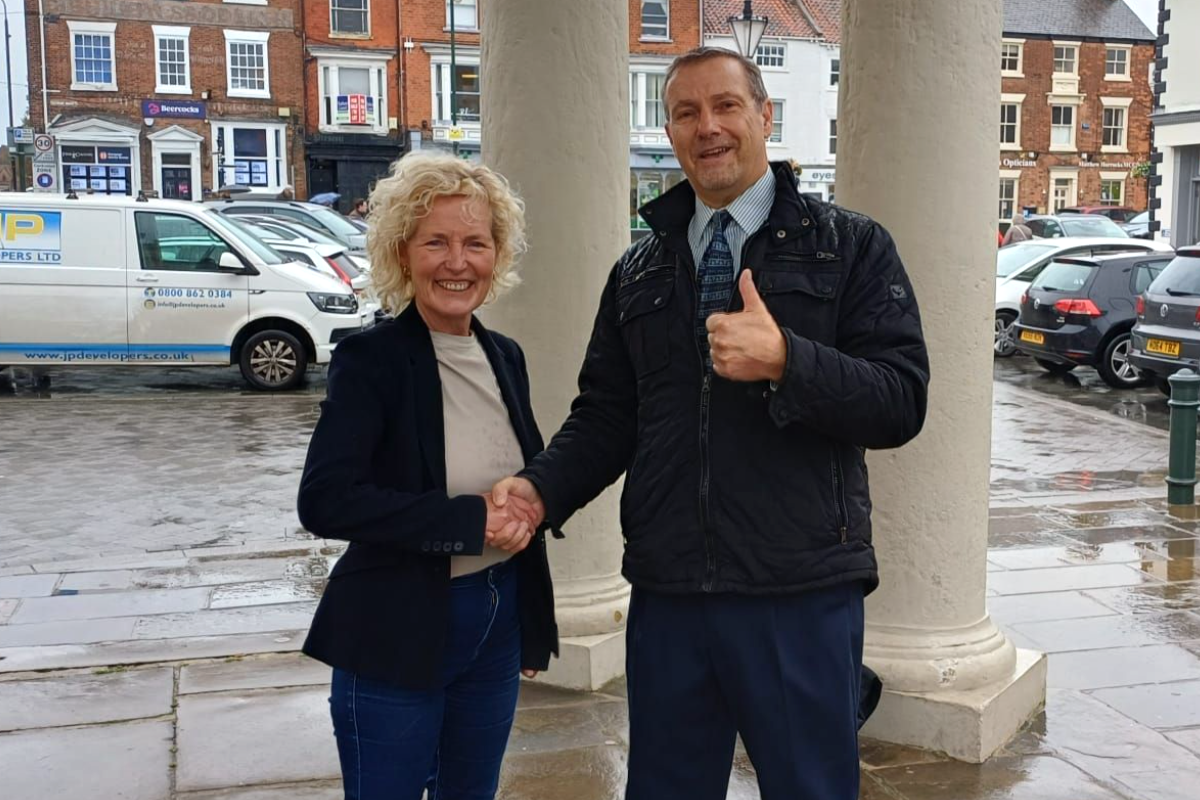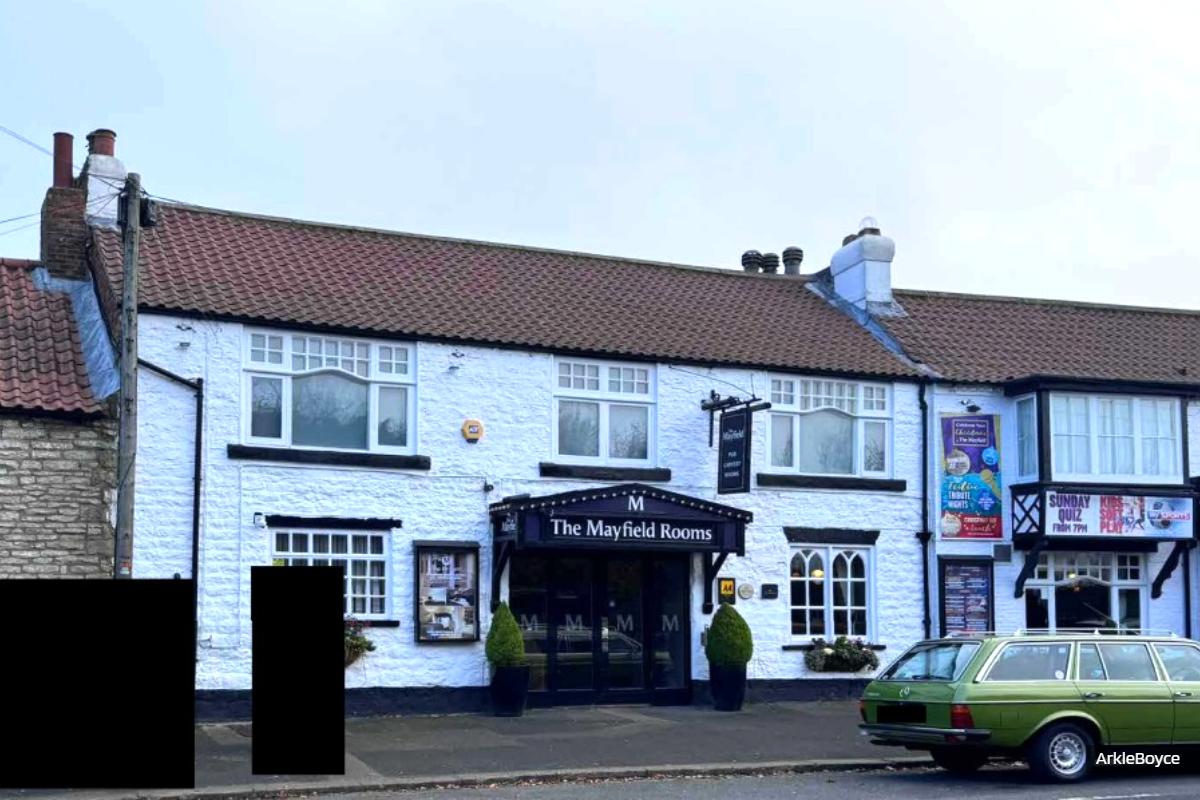For a long time, Rita Lifshitz would come back to Kibbutz Nir Oz every week, sit outside the house of her father-in-law, Oded, and have a drink.
To raise a glass to the people who had gone. To remember October 7.
Follow updates on Israel-Hamas war
"We used to drink a beer every weekend," she tells me, her eyes trained on the small little table on the patio where they would sit and talk.
"So for 500 days I came to have a beer outside the table. Here I put the beer for grandpa and I put the beer for me. He was my psychologist for 500 days.
"He was only a few kilometres from me and I just imagine him coming in with a big smile."
Around her, the charred remains of violence, death, and devastation. The burnt-out wreckage of happy lives that came to a horrific end.
I spent two hours walking around this kibbutz with Rita. She showed me the places where friends had been murdered, where loved ones had been taken hostage, and where her best friend had been shot and then dragged away, his blood still smeared over the floor of his home.
"It is a trauma," she says. "And all of us, the whole kibbutz, wakes up every morning to the 7th of October."
On the morning of 7 October 2023, this small kibbutz, which sits within sight of the border with Gaza, was overrun by Hamas fighters.
In total, 117 people, more than a quarter of those who were there that morning, were either killed or kidnapped. No other kibbutz suffered such a high proportion of casualties.
Among them, Oded Lifshitz and his wife, Yocheved. Both were in their 80s, and both had volunteered for charities promoting peaceful relations with Gazans. Both were taken hostage on October 7.
Oded used to drive sick children from Gaza and take them to Israeli hospitals for treatment. Now we stand in the charred remains of their home.
Yocheved was eventually released after 16 days as a hostage, but Oded died in captivity. His body was not returned until earlier this year, but he had probably died a year earlier.
And now we stand in the charred remains of their house.
To Rita, this place is both a touchstone to a happier time and also a stark warning of inhumanity. A panel of metal is all that is left of the piano that Oded loved to play.
The couple's crockery is still scattered in a corner, thrown there when their furniture was upended.
"They started firing rockets at us at 6.30 in the morning, but we didn't worry because they have been firing rockets at us for 20 years," says Rita.
"There was one day we had 800 rockets land round here, so we are not scared of rockets. We didn't get any information about what was happening, no warning.
"The first we knew was when two people working in the fields saw Hamas, and they were the first ones to be killed."
It is believed that around 540 fighters attacked the kibbutz - far more than Nir Oz's entire population. It was a massacre. Only six houses escaped attack.
The nursery school workshops, gardens - all of them shot, burnt, destroyed.
We move to the far end of the home, picking our way through the debris that still litters the floor.
There is a steel door, the entrance to the bomb shelter where Oded and Yocheved often slept and where they tried to hide.
Their beds are still here, blackened and burnt. In the door are bullet holes - Oded had done his best to hold the door shut, but he was shot in the hand and the attackers stormed in.
'The death road'
The last time Yocheved saw her husband was him lying on the floor, bleeding. As she was taken away, rolled into a carpet, she didn't know if he was dead or alive.
To walk around this kibbutz is to witness the scars of trauma again and again. A black flag outside a house means someone died there.
A yellow flag designates that an occupant was taken hostage. There is a road that Rita calls "the death road," where almost every house has at least one flag outside.
Read more about the war in Gaza:
Trump's Gaza peace plan explained
Sky News reports from inside Gaza City
We go into the home of one friend, who was murdered in the living room. Her clothes are still there, her handbag hangs on the bedroom door. It feels so intrusive to be here, but Rita insists the world needs to see.
We see Natan, a long-term resident who is now 88 years old. His home was one of only six to escape being ransacked, because the Hamas attackers couldn't work out how to get through the front door.
He says he came back as soon as he could, despite the destruction around him, insistent he is not fearful.
"This is my home," he says emphatically.
Rita takes me to the home of her best friend, Itzhak Elgarat. Unlike most of the homes, his was not set ablaze, so it still looks now as it did then.
A bottle of olive oil is on the side, cooking ingredients laid out, a couple of bottles of wine set on the table.
But also bullet holes strewn across the walls, in the furniture. Possessions thrown around and, horrendously, Itzhak's blood still smeared across the walls, the floor, and the door where he was shot.
The other side
I climb a set of stairs, which used to belong to a house that has now been demolished.
You can see Gaza in the near distance, across a few fields.
And over there, not so long ago, Sabah might have been looking back.
Just as Rita's life has been torn apart by the war, so has Sabah's. For Rita, it is the mental torment of what happened on October 7, the struggle to process and to move on.
For Sabah, it is something more fundamental. A Gazan displaced from Khan Younis, she once lived in a grand home near the border, only a couple of miles from Kibbutz Nir Oz, as the crow flies.
It was a home for multiple generations, the pride of her life, "a place meant to give us stability and peace".
Since then, she has been displaced 13 times, and she worries that her home has been reduced to rubble.
"Personally, I long to go back to even the ruins of my house, to sit among the rubble, simply to be there," she says.
"Even that would be better than this life. At least then I might find a little peace."
The last time she saw her home, it had been hit by an explosion. Some of it was destroyed, but other parts were habitable.
But since then, Sabah has been told that it has been damaged by both fire and military action - news that devastated her.
She says: "Someone told me 'your house was the very first thing they burned. The fire raged inside for three days. And after they burned it, they brought in an armoured vehicle and blew it up'.
"Just imagine losing your home. When they told me what happened to mine, I spent nearly ten days doing nothing but crying.
"It feels like your soul is torn away. Your spirit leaves you."
She insists that this story is not just about October 7, not just about Hamas, but about decades of struggle that led to this point, about Palestinian anger and accusations that they are oppressed by Israel.
"This goes back generations. What happened on October 7 was not the beginning of the story. I remember my father, my grandfather, and their fathers before them telling what they had endured. We have lived our entire lives under this weight.
"This land is ours, our homeland. We did not buy it. It has been passed down from our ancestors, generation to generation. That is why it is not easy for me, or for any of us, to surrender it.
"The truth is that we are exhausted. We are an oppressed people. October 7 was just one day, but for us, it has felt like living through hundreds of October 7th's, over and over again."

(c) Sky News 2025: October 7: Two lives torn apart by the Hamas attack - and Israel's response




 Millions could get hundreds of pounds compensation over car loan mis-selling
Millions could get hundreds of pounds compensation over car loan mis-selling
 'Who's going to protect us?': Ex-wife of man injured in Manchester synagogue attack says he no longer wants to live in UK
'Who's going to protect us?': Ex-wife of man injured in Manchester synagogue attack says he no longer wants to live in UK
 PM condemns 'un-British' plans for protests on anniversary of Hamas terror attack
PM condemns 'un-British' plans for protests on anniversary of Hamas terror attack
 Kemi Badenoch repeatedly refuses to say whether she admires Nigel Farage
Kemi Badenoch repeatedly refuses to say whether she admires Nigel Farage
 Denmark proposes social media ban for under-15s - as PM hits out at 'monster'
Denmark proposes social media ban for under-15s - as PM hits out at 'monster'
 Robin Williams's daughter begs people to stop sending her AI videos of her father
Robin Williams's daughter begs people to stop sending her AI videos of her father










